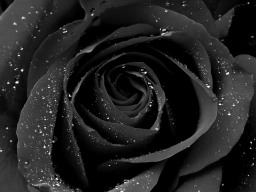This week in #TakeTheMaskOff we are talking about Autistic Burnout.
When I was 22 I went to college and did really well. I was getting high grade after high grade, making new friends, learning about myself as well as my subjects, and everything was fantastic. And then, halfway through the year, I started to fall asleep at my desk. I slept all the time even when I was supposed to be studying. I fell asleep in my favourite class. I slept in the break room propped up on the table or hanging off the end of the minimalist (read: extremely uncomfortable) royal blue two-person sofa. To the consternation of my family, I went to bed early every night, slept in late at the weekends, and starting having midday naps whenever possible. My stress levels rose even higher than they had been in the past six months, but no matter what I did, no matter how much I slept through, I could not shake the feeling of utter exhaustion. It felt like I was trying to wade through cooling tar. Then I blacked out and fell down the stairs.
I went to the doctor, who for some unknown reason decided that I was suffering from a mystery virus (even though I didn’t feel ill as such, just exhausted and dizzy), and gave me a sick note to explain why I needed extensions on some of my papers. Somehow I staggered through the rest of the school year and emerged battered but triumphant, clutching my pile of A grades.
I was high on adrenaline from success, I suppose. I was fine for a few months, and then my anxiety, exhaustion, and agoraphobia returned with a vengeance. I couldn’t cope with being around people more than an hour or so per day. I spent 90% of my time hiding in my bedroom, too tired and overwhelmed to do more than my assigned chores around the house (cleaning, cooking, and laundry) before disappearing into my sanctuary again. I had burned out back in the January, but had forced myself to keep going and therefore ended up so badly burnt-out that I couldn’t even leave the house. I slept, again, so much that my family grew alternately concerned and annoyed. I couldn’t find work although I was honestly trying hard to do so. I don’t know how I would have managed if I had found work, so maybe it’s fortunate that I didn’t until nearly a year later.
My point is that it was never recognized for what it was. It was called anxiety, depression, laziness, stubbornness, “not-trying-hard-enough”, and numerous other names ranging from the inaccurate to the insulting. While it’s true that I was both anxious and depressed, I firmly believe that what I experienced was autistic burnout. My world, both external and internal, had undergone vast paradigm shifts in that year, and added to the physical and mental exertion of going to college (another new thing for someone who had never set foot in a school before) and writing twenty-one papers in nine months, the result was an exhausting cocktail of effort and confusion and new experiences. My brain and body attempted to shut down for self-preservation, but I forced myself to ignore their protests and succeed because I was desperate both to prove myself and to gain some kind of academic qualifications.
Autistic burnout is not a buzzword. It’s real, and it can be debilitating. It’s very important to try to take regular time-out from the things that overwhelm you. Regular rest and proper relaxation – in a way that makes you relaxed, not necessarily what other people suggest – can be the pressure valves that help you not to burn out.
If you do burn out, try not to force yourself to carry on with your normal routine. Your body is telling you something and you must listen to it. Take time to heal and be nonverbal if you need to be. Try to set boundaries with your family and loved ones (if at all possible) and help them understand that you need the space and quiet and rest in order to recuperate.
Don’t forget to reach out in any way you can to the warm and helpful autistic community online. Having friends who truly understand what you’re going through is one of the best ways to start healing from damage and burnout.
And most important of all, remember that you are not broken. Damaged, perhaps, but you are whole and you are absolutely unique – and that is a beautiful thing.


